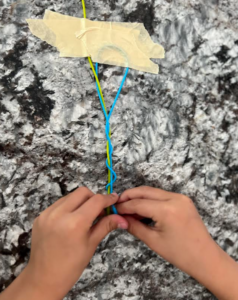The Gift
By – Yvette Rivera
There are some students who touch your life in ways that you can never imagine. Students who do not even realize that they are having an impact on you. For me it was a student that I taught right out of college. After graduating college in May, I set out to teach junior high summer school. Not the ideal choice for a first time teaching experience, but I was young and enthusiastic. Well I did not count on the class I was going to encounter. My students were a rough bunch to say the least. A combination of every school in the district’s worst of the worst. Still I was positive that I could make a difference. By the fourth week of summer school I had given up on making a difference and just hoped that at least some of these kids could pass the course. Of course, no class is complete without a ringleader. Apparently “John” found pleasure in just driving people crazy. There was no logical reason for the way he behaved. He was an extra challenge in a room full of challenges.
I cannot tell you when and how something changed, but one day it did. John’s behavior was still atrocious, but something else in him changed. John became very close to me. He moved his desk right next to mine and he became almost like my personal assistant. John still did not like to listen, but he loved to talk. He would tell me many different stories about his life. One day he told me a story that forever changed my life. John asked me if I liked CK1 perfume. I said yes, not knowing where the conversation was going. He told me that his parents had an argument and his father brought the perfume to make amends. He said that his mother did not like the perfume and that she did not want the gift. He brought me the perfume and said it was because his mom did not want it. I accepted the gift from him after being sure he had gotten permission to give it away. A week later I was on the phone with John’s father. We were discussing John’s behavior again. His father started the conversation by saying, “since my wife passed away,” and before he could finish, I stopped him and asked him to explain. John’s mother had died the beginning of that year from cancer. The story about the perfume was true, but it happened almost a year earlier. John’s father insisted that I keep the perfume, stating that his son must have had a special reason for giving it to me. John and I talked about his mother, but we never discussed the gift. At the end of the summer, John was able to pass my class (barely) and move on the 7th grade. I never had an impact on John’s behavior; his grades barely improved. I didn’t make any of the impacts that teachers are expected to make. However, I made another impact that I never expected. On the last day of summer school, John who never liked to show feelings or emotions came back to my room to say goodbye several times. On the final trip to my room, John hugged me a long time and said, “Thank you Ms. Rivera. I love you.” Those words have changed my life forever. Those were words I know that child had not said in a very long time, but he felt that he could tell me. As I waved goodbye and assured him that I loved him too, I knew that I would never forget John. How can you forget the student that illustrates to you that teaching is more than just grades and books? Teaching is about those life altering moments you never expect. Teaching is about touching a student’s life and having a student touch yours.
|




